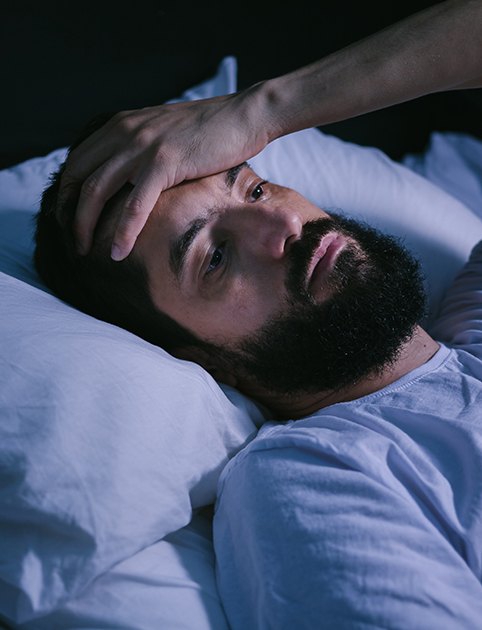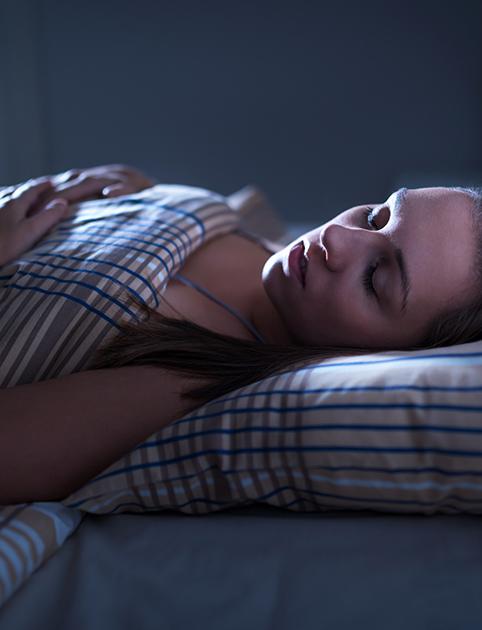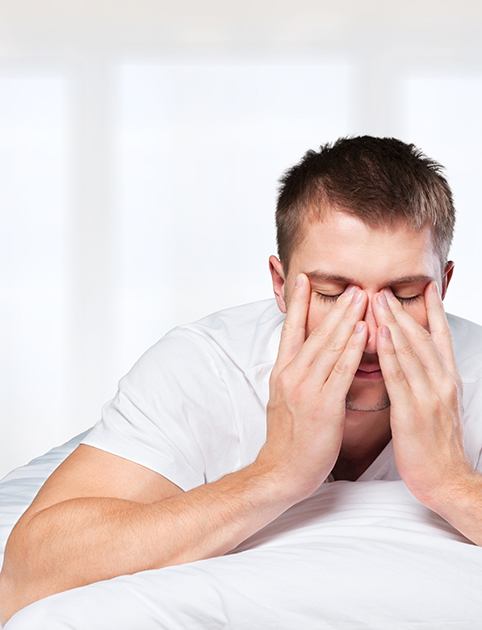Central Sleep Apnea – Topeka, KS
Learn About the Rarer Kind of Sleep Apnea
Most of the time, sleep apnea is caused by an obstruction of the airway; this is also known as obstructive sleep apnea (OSA). That being said, though, some people suffer from a different form of sleep apnea called central sleep apnea (CSA). Even though CSA is rarer than OSA, it’s still important to be aware of its potential causes and the harm it can lead to. If you suspect that you might have central sleep apnea, call us today so that Dr. Michel can advise you on what to do next.
Why Choose Sleep Solutions by Michel Dental for Sleep Apnea Treatment?
- Highly Experienced Sleep Dentist
- State-of-the-Art Technology
- Comprehensive, Personalized Approach to Care
What Is Central Sleep Apnea?

CSA causes your breathing to repeatedly stop and restart while you’re asleep, similarly to OSA. But unlike OSA, CSA is not caused by the airway being physically blocked. Instead, it’s an issue with your brain’s ability to control the rest of the body while you slumber.
If you have CSA, your brain is not sending out the signals that are needed to regulate breathing. Since the root of the problem lies in the brain, CSA is classified as a neurological condition.
Causes of Central Sleep Apnea

There are several factors that can potentially lead to CSA:
- Cheyne-Stokes Breathing: Cheyne-Stokes Breathing is when your breathing speeds up, slows down, stops entirely, and restarts. About half of all people with CSA also experience Cheyne-Stokes Breathing.
- High Altitude: People who live in cities and towns that are elevated at least 8,000 feet above sea level tend to have a higher chance of developing CSA.
- Certain Medications: In some cases, CSA has been found to be linked to morphine and other types of narcotics.
- Certain Medical Conditions: Research has found a link between CSA and a number of medical conditions such as heart failure, kidney failure, and Parkinson’s.
Possible Complications of Central Sleep Apnea

Untreated CSA can have many of the same consequences as untreated OSA. In particular, it can leave you feeling unusually exhausted during the day due to repeatedly disrupting your slumber. On top of that, it can have an adverse effect on your cardiovascular health since it reduces oxygen levels in the blood; as such, it can put you at higher risk for heart attacks.
When Should You See a Sleep Doctor?

Have you been told that you sometimes stop breathing at night? Do you have reason to think that the quality of your sleep is suffering? If you answered “yes” to either of these questions, it’s worth seeing a sleep doctor. They can make arrangements for you to have a sleep test performed. The results of your test will help determine whether you’re truly suffering from sleep apnea. Once an accurate diagnosis has been made, you can start exploring the available treatment options.

